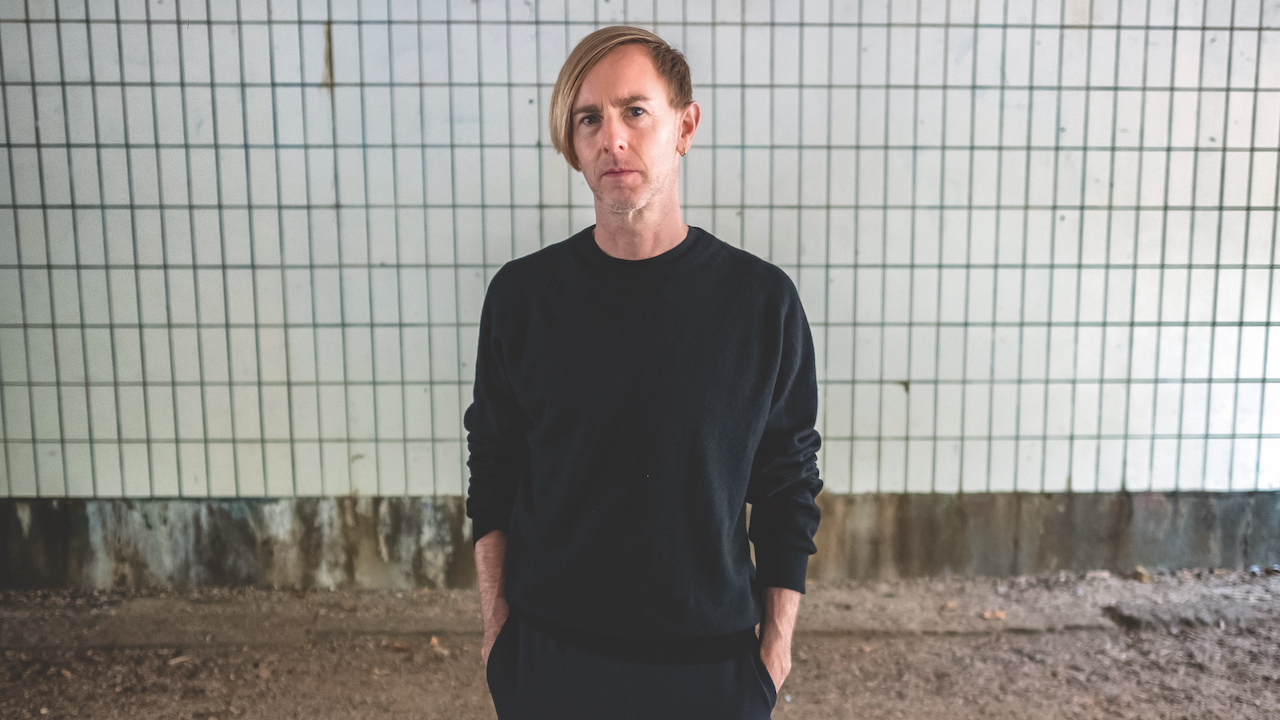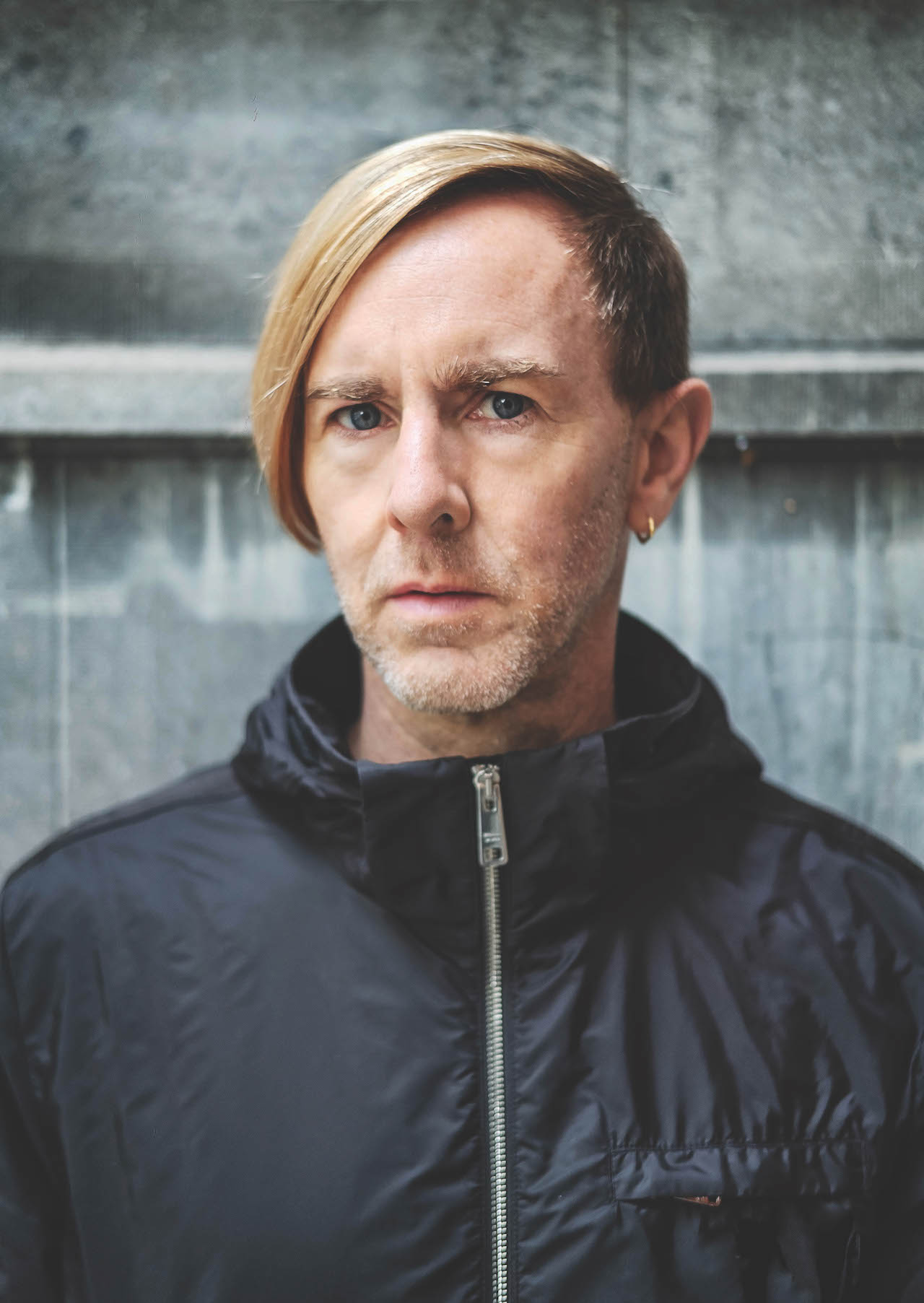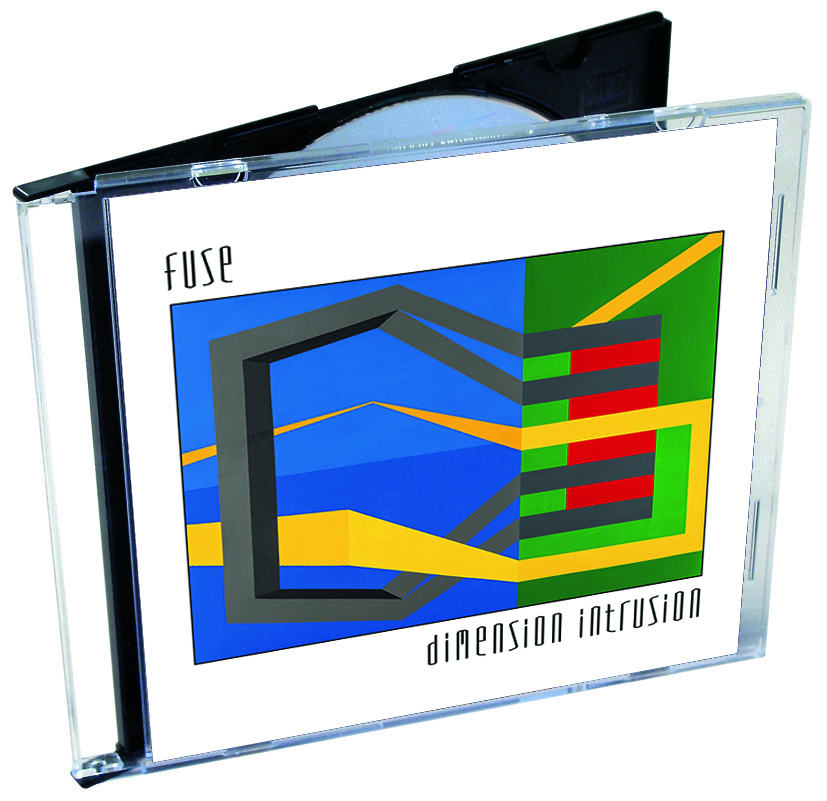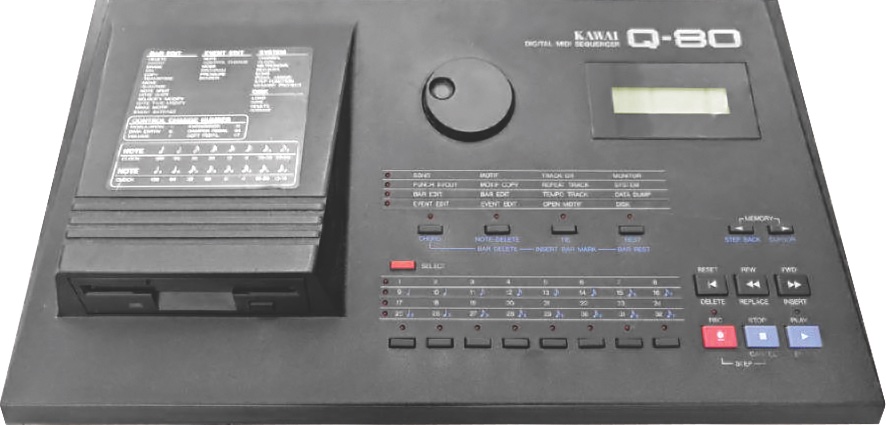
Windsor, Ontario. August ’92. The dead of night (his favourite time to create). The lone figure of Richie Hawtin bounces maniacally from machine to buzzing machine in his studio.
Already locked into a 30+ minute jam of rhythmical acid techno, he’s lost in the music. Part man, part Wavestation. At once, an unholy peal of thunder strikes (with a lovely attack and some nice reverb, to be fair). His ‘lab’, under the kitchen in his folks’ home, shakes, killing the lights. The once blinking banks of humming hardware are deathly silent in the now pitch-black room.
“It was this crazy lightning storm,” says Hawtin, instantly transported back some 30 years. “And, at that point all my equipment kind of glowed, and then shut down.” 1.21 gigawatts of pure electronic power had surged directly into the heart of his signature sound modules, direct from the sky above, forever scrambling their circuit-heavy souls, and rewiring their dance music DNA. A gift from the techno gods themselves, perhaps?
“You know,” says Hawtin, still shook by the memory, “it sounds like I’m making this up. But… something happened.” Like some kind of tidy-haired techno Dr. Frankenstein, he now stood over the once dead carcasses of his equipment. Each one now reanimated, awaiting their master’s next musical command.
He gingerly approached his hardware, picking up the jam where he left off. But, the sound had been forever altered. The iconic analogue gear pulsed with a new life. “After that, there was something wrong with my Wavestation,” shudders Hawtin. “It was even more distorted. After that, I probably made some of the hardest tracks I ever did.”

Ladies and gentlemen, this is just one of the tales of the futuristic underground sound experiments conducted by Mr. Richie Hawtin, some three decades back. It may have gone down exactly like this.
Or, we may be drastically over-exaggerating, drunk on poetic licence. But, dance music needs more creation myths, skewed by post-club whispers, each re-telling adding a new dimension to intrude on the last gasps of reality. Pass it on…
Dimension Intrusion track-by-track with Richie Hawtin

A New Day
“This is called A New Day because it was written, from what I remember, after some kind of breakup. And, I don’t know if it was the next day, but it was about the idea of looking forward, into the next journey. To the next chapter in life, you know? When you’re 22/23 years old, a breakup feels like the whole world is collapsing. Like, ‘Oh my god. Is my life over?’ So, A New Day was perfect in its feeling for the opening track. And also because, whether this was an album or a compilation, it definitely was a new chapter in my life when it got released.”
F.U.
“I remember recording that one very specifically, because I had Joey Beltram and Mundo Muzique staying over at my mom and dad’s house. Joey was already a techno superstar with Energy Flash, and we were good friends. We’d made an EP called Vortex. And, just shortly after they left, I had this energy from our collaboration.
I wanted to take that intensity, but use it with the [Roland] 303 stuff I had been experimenting with. Because, Vortex was very [Sequential Circuits] Pro One based, and very ‘synthesiser’ and crazy. So, you have a similar kind of hi-hat feeling, with the claps going on. And, big claps were a Hawtin trademark. So, that’s where that came from.”
Slac
It was my first attempt of creating an album, that was a compilation, that was masquerading as an album
For me, this is the first Plastikman song. It’s [Roland] 808-driven. It’s slinky and slacky. It’s half time and slow. I always referenced Detroit. I’m from Windsor [Ontario], yes, but, I spent my teenage years hanging out, DJing and clubbing in Detroit. Radio waves do not understand borders. And, in Canada, the strongest were coming from Detroit. All these different stations were playing electro booty music.
“I think ‘Slac’ is referencing that low speed, slow 808 snare. And, of course bringing in the Hawtin favourite instrument – the 303. This is basically an 808 and 303. And a couple of claps with reverbs. It’s the beauty of simplicity. This whole album is like that.”
Dimension Intrusion
“This was made before the album was actually coming together. I wanted to make something different. And, I’m usually going against the grain. I’d done all these hard techno tracks. Everybody, again, thinking of my mindset, was releasing compilations of techno tracks. And I was like, ‘Well, this is kind of boring’.
“So, I released a limited edition red vinyl on [Hawtin and John Acquaviva’s own label] Plus 8 called Dimensions/Into The Space. And that was kind of me saying, ‘Hey, F.U.S.E. isn’t only pumping, slamming [Roland] 909. It can also be kind of musical and introspective.’ And that was probably the first step towards the Dimension Intrusion album.”
Substance Abuse
“There’s so many things I’m referencing here. At that time, there was a huge amount of buzz and publicity over people doing ecstasy, especially in the UK and Europe. It wasn’t so big in North America and Detroit. And Windsor wasn’t a drug scene. OK, some people were smoking, and there was a bit of acid here and there. Later, it got worse. Then, Joey had Energy Flash with the, ‘Ecstasy! Ecstasy!’. So, it was a little bit of a joke on that. And, also again, it was just me trying to make this very pulsating music. And, actually, the original name of it was ‘Pulsate’, because it’s just the throbbing low of the 303.”
Train-Trac.1
"This was the one that was recorded during the lightning storm. It affected my Korg Wavestation A/D, which was designed by an old friend of mine who passed away, Dave Smith. Something must have happened to that, because it was even more distorted now. And that started me down a path of trying to use it.
I also lived next to a train track, so it references that. It’s definitely a harder track. I also made a couple of other EPs which came out on the Probe label. All drum tracks, slightly distorted, and hard. Once the studio gear got fixed, I went on with my normal sound.”
Another Time (Revisited)
“This, and the forthcoming track, UVA, were very early experiments with MIDI and CV/gates. A lot of the stuff on this album is very simple. It’s 303s, which have a built-in sequencer. The 909 and 808, which, of course, have built-in sequencers. And then [Roland] 101s and things which I could trigger, which also had built-in sequencers. So, a lot of Roland devices, and they’re all kind of synced up and bubbling. And I would just jam, live. And then, as some strings started to come in, and some other melodies, I started to play with a Kawai Q80. And that enabled me to add a little bit more intricacy to some of the programming.”
Theychx
“This has a sci-fi theme. I was bringing my inspirations into the music. Most techno in the ’90s was inspired by the future, and sci-fi. This was a real deep, ambient exploration of just, bubbling lines. And, kind of just letting yourself get lost in sci-fi futurism. Like a lot of my music, it was recorded in the evening, or overnight. And it was just a live take. Everything on this album was recorded live. It was probably like, five or six in the morning. Just before going to bed. So, you’re in that headspace. Originally it was 40 minutes long. I just captured the moment. The dead of night. It’s just you there, by yourself.”
UVA
The Wavestation – that was the first MIDI keyboard I got. When you don’t have much, you just play on it, and do stuff. I was creating the strings, and this eight-bar bubbly melody came out, which I still love. It was so beautiful. It was melancholic. And it felt ‘Detroit’. I don’t play keys, never have. I came from using the SH-101. You press a note, and then you either press another note, or you press rest. Then you just find the notes, and try to make it like you think. Then, once you play it back, maybe it comes out a bit different. And you keep doing that until you get something.”
Mantrax
“That one was recorded a bit later, towards when I was thinking about the album. And I felt the album needed something to bring it back up. It was coming from some melancholic notes, but with an energy. It needed that energy, but still being spatial and spacey and positive. So, this is pushing forward. It’s like, ‘Okay, we’re going to the end of the album now. Thank you for joining me on this journey. And we’re going to just continue, and just like, zoom back out to space.’ So, that was really what was in my brain when I was recording it.”
Nitedrive
“One of my favourite things to do, back then, was driving, listening to demos and music. I had this Mazda MX-3 – it was the first car that I had bought, you know? I had a CD changer in the back, and you could burn some CDs. And, go off and listen to what you’re working on, and drive through Detroit. So, this was kind of just me driving from Windsor, to this tunnel, over the bridge, down the highways of Detroit. And, it’s quiet. It’s introspective. But also it’s on a journey. It’s going somewhere. It’s like, ‘Okay, you’ve just been on this journey. We’re gonna continue.’ And it’s also building up to the last main musical track.”
Into The Space
“My brother was very inspirational for this album, because he was working on the art. He’d already finished two paintings, one of which was ‘Dimension Intrusion’, and the other was ‘Into The Space’. Matthew’s paintings were, on one level, very minimalistic. But, they’re also quite complex and quite colourful. They always felt like they were pulling you into another dimension. There was this incredible amount of space and potential, where you’re getting sucked in. And so, this track is very, very sci-fi. It’s super stripped down. And it’s just really like you’re in… the system. I could really imagine people sat looking at the cover, listening to this music. Just getting sucked into space.”
Logikal Nonsense
“And then the last track was just an interview that John Acquaviva and I had done on a very prestigious show called Brave New Waves in Montreal. I just cut that up. Just to show that we’re two quirky, nerdy kids, having fun. We were taking everything very serious, but we were never too serious about what we were doing, you know? We were just really happy and excited to be in this position. We didn’t know how long it was going to last. We were just on our own mission. Happy to meet cool people, happy to make music. And, it’s a bit of a light-hearted ending for, I guess, the first serious compilation album.”
In the studio with Richie Hawtin

"The studio was at my parents’ house. I had all the Roland stuff synced up. So, 101s, 303, 808s, 909s. A [Sequential Circuits] Pro One. Then a [Kawai] Q80 and [Korg] Wavestation A/D. I would sit on the Wavestation with the Q80 and work on ideas. Then go back into the studio, and revisit them.
“Everything was recorded live to DAT, then moved to 2-track reel-to-reel at 15 IPS. Then I’d edit, because some tracks were 40 minutes long. There’s no one around, and you’re just kind of living with the machines, which is what I love to do in the studio.
"I’ve tried for years to get the feeling back of some of these tracks – it was just a moment in time, the way the kick, bassline, and reverbs all kind of moulded together. I wouldn’t say it’s the best mix in the world. I don’t think you could make a good mix of that, because it just needs to be throbbing. But, you can hear the prototype of the Hawtin ‘acid’ sound.”
To celebrate the 30th anniversary of Richie Hawtin’s landmark LP, Warp Records has released a limited-edition vinyl with exclusive artwork.







